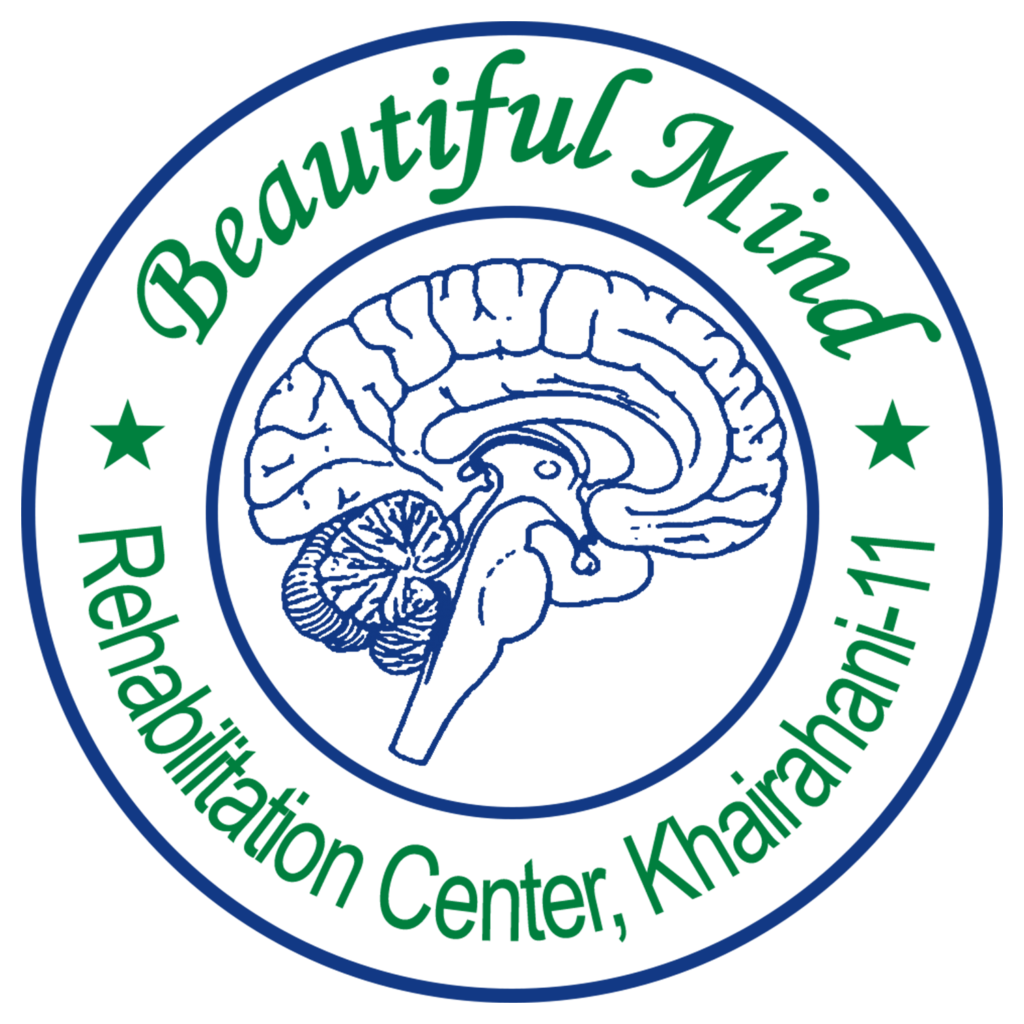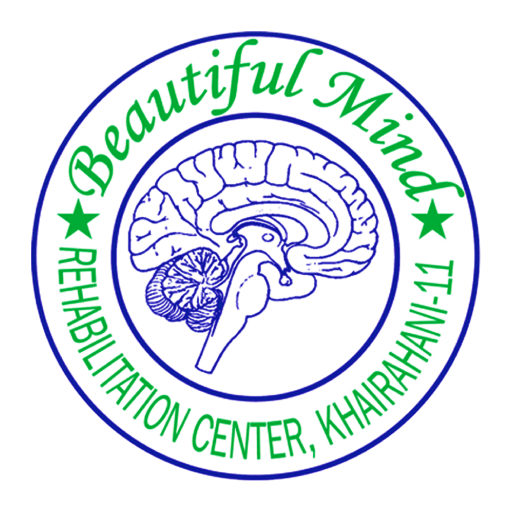Everything You Need to Know About Ketamine Treatment in Nepal
Intro: Everything You Need to Know About Ketamine Treatment in Nepal
Everything You Need to Know About Ketamine Treatment in Nepal: Mental health care in Nepal is undergoing a quiet but powerful transformation. For decades, conditions like depression, anxiety, PTSD, and treatment-resistant mood disorders were often left unspoken, with limited treatment options available. Traditional medications and therapies have been life-changing for many, but not everyone responds to them. This is where Ketamine Treatment comes in—a breakthrough therapy that is giving hope to countless individuals worldwide, and now, right here in Nepal.
At Beautiful Mind Institute of Psychiatry, we are proud to be among the pioneers in introducing this advanced treatment option, combining science, compassion, and holistic care to help people heal. Let’s take a deep dive into everything you need to know about Ketamine Treatment in Nepal—from what it is, how it works, its effectiveness, safety, cost, and why it might be the right step for you or your loved one.

🌿 What is Ketamine Treatment?
Ketamine is not new. Originally developed as an anesthetic in the 1960s, it has been safely used in hospitals around the world for decades. In recent years, researchers discovered something remarkable: at much lower doses than those used in anesthesia, ketamine has profound antidepressant and anti-anxiety effects.
Unlike traditional antidepressants that can take weeks or months to show results, ketamine often works within hours to days, making it particularly valuable for people struggling with treatment-resistant depression or severe suicidal thoughts.
🌿 Why is Ketamine Treatment a Breakthrough?
For many patients in Nepal, conventional antidepressants or therapy don’t always provide full relief. Some people wait years, trying one medication after another, battling side effects, and losing hope. Ketamine changes that by:
- Rapid Relief: Many patients notice improvement in mood, clarity, and energy within 24–48 hours.
- Effectiveness in Resistant Cases: Ketamine has shown success in individuals who did not respond to traditional medications.
- Support for PTSD and Anxiety: It helps reduce traumatic memory loops and deep-seated anxiety patterns.
- Neuroplasticity Boost: Ketamine stimulates the brain to form new connections, supporting long-term healing.
This makes ketamine not just a treatment but a turning point in modern psychiatry.

🌿 Conditions Treated with Ketamine Therapy in Nepal
At Beautiful Mind Institute of Psychiatry, ketamine is offered as part of a holistic mental health care plan. It can help with:
- Major Depressive Disorder (MDD)
- Treatment-Resistant Depression (TRD)
- Post-Traumatic Stress Disorder (PTSD)
- Suicidal Ideation (persistent suicidal thoughts)
- Severe Anxiety Disorders
- Bipolar Depression (in some cases, under careful monitoring)
It’s important to note that ketamine is not a cure-all, but it can be a powerful catalyst for recovery when combined with psychotherapy, lifestyle changes, and family support.
🌿 How Does Ketamine Work in the Brain?
Traditional antidepressants usually target serotonin, norepinephrine, or dopamine pathways. Ketamine is different. It works on glutamate, the brain’s most abundant neurotransmitter.
By activating NMDA receptors and increasing brain-derived neurotrophic factor (BDNF), ketamine:
- Promotes neuroplasticity (the brain’s ability to form new pathways).
- Helps break negative thought cycles.
- Allows people to experience a sense of emotional reset.
This scientific mechanism explains why ketamine often works when other medications fail.
🌿 What is a Ketamine Session Like?
Patients often wonder, “What will happen during my ketamine treatment?”
At Beautiful Mind Institute of Psychiatry, the process is carefully designed for safety, comfort, and healing:
- Assessment: A full psychiatric and medical evaluation is done to confirm eligibility.
- Preparation: Patients are guided through the process, with emotional support before the session.
- Administration: Ketamine is usually given through IV infusion or intramuscular injection in a controlled clinical setting.
- Monitoring: Throughout the session, vital signs are monitored, and staff provide reassurance.
- Reflection: After the session, patients often feel calm, reflective, or emotionally lighter.
- Integration: Follow-up counseling helps patients process their experiences and apply new insights.
The session itself usually lasts 40–60 minutes, but its impact can last far longer.
🌿 Is Ketamine Treatment Safe?
Safety is a natural concern, especially for new treatments. At therapeutic doses, ketamine has a strong safety record when administered in clinical settings under trained supervision.
Possible side effects include:
- Mild dissociation (feeling detached temporarily)
- Drowsiness or dizziness
- Nausea (in some cases)
- Temporary increase in blood pressure
These effects are short-lived and carefully monitored during treatment. Unlike opioids or other addictive substances, when used medically, ketamine carries a low risk of dependence.

🌿 Ketamine Treatment in Nepal: Why It Matters Now
Nepal faces unique challenges in mental health:
- Limited access to advanced psychiatric treatments.
- High stigma surrounding mental illness.
- Shortage of trained mental health professionals.
- Rising stress, trauma, and depression due to social, economic, and environmental factors.
By introducing Ketamine Therapy, Beautiful Mind Institute of Psychiatry is bridging a critical gap. This treatment is not just about science—it’s about restoring hope to individuals and families who have long felt helpless.
🌿 Cost of Ketamine Treatment in Nepal
One of the most common questions patients have is about affordability. While costs vary depending on dosage, number of sessions, and medical monitoring, Beautiful Mind Institute of Psychiatry is committed to making this breakthrough treatment accessible and reasonably priced in Nepal.
We believe mental health care should never be a luxury—it is a right.
🌿 Why Choose Beautiful Mind Institute of Psychiatry for Ketamine Therapy?
Choosing the right place for treatment is just as important as choosing the treatment itself. Here’s what makes us different:
- Expert Team: Our psychiatrists, counselors, and nurses are trained in advanced psychiatric care.
- Holistic Approach: We combine medication, therapy, mindfulness, and rehabilitation.
- Safe Environment: All treatments are conducted under strict medical supervision.
- Personalized Care: Each patient receives an individualized plan based on their needs.
- Compassion First: We treat not just symptoms but the whole person—their story, family, and future.
🌿 The Future of Mental Health in Nepal
The arrival of Ketamine Treatment marks a new era of possibilities in Nepal’s mental health system. It shows that Nepal is no longer behind in adopting world-class treatments.
More importantly, it tells every individual battling depression, PTSD, or anxiety: You are not alone, and effective help is available.
At Beautiful Mind Institute of Psychiatry, we believe in breaking stigma, building resilience, and restoring lives.
Conclusion
Ketamine Treatment in Nepal is more than just a medical innovation—it is a beacon of hope. It is fast, effective, safe, and deeply transformative for people who have struggled with depression, trauma, and hopelessness for far too long.
If you or someone you love is searching for answers, know that healing is possible. With the right care, support, and modern treatment options like ketamine, recovery is no longer a distant dream—it is a reality happening here and now.
At Beautiful Mind Institute of Psychiatry, we are honored to walk beside you on this journey toward light, strength, and well-being.
FAQs on Ketamine Treatment in Nepal
1. What is Ketamine treatment?
Ketamine treatment is a medical therapy where low, controlled doses of ketamine are used to manage conditions like depression, PTSD, anxiety, and chronic pain. Unlike traditional antidepressants, ketamine works rapidly by targeting the brain’s glutamate system.
2. Is Ketamine treatment available in Nepal?
Yes, ketamine treatment is available in Nepal through specialized mental health facilities like Beautiful Mind Institute of Psychiatry. It is offered under medical supervision to ensure safety and effectiveness.
3. Who can benefit from Ketamine therapy?
People with treatment-resistant depression, PTSD, anxiety disorders, and chronic pain may benefit from ketamine therapy, especially if traditional medications have not worked.
4. How does Ketamine help with depression?
Ketamine stimulates glutamate activity in the brain, promoting new neural connections. This helps restore mood regulation and provides rapid relief from depression symptoms, sometimes within hours.
5. Is Ketamine therapy safe?
When administered in a clinical setting under medical supervision, ketamine therapy is considered safe. Side effects are usually mild and temporary, such as dizziness or nausea.
6. How quickly does Ketamine treatment work?
Unlike antidepressants that may take weeks, ketamine treatment can reduce symptoms of depression or PTSD within hours to a few days after the first session.
7. How many sessions are required?
The number of sessions depends on individual needs, but most patients undergo a series of 6–8 treatments over a few weeks, followed by maintenance sessions if needed.
8. Is Ketamine treatment approved in Nepal?
Yes, ketamine is legally approved for medical use in Nepal. At Beautiful Mind Institute, it is used responsibly within psychiatric care.
9. Can Ketamine cure depression completely?
Ketamine is not a cure, but it offers significant symptom relief, especially for those who have not responded to other treatments. It is often part of a holistic treatment plan.
10. What is the success rate of Ketamine therapy?
Studies show that up to 70% of patients with treatment-resistant depression experience significant improvement with ketamine therapy.
11. How is Ketamine administered?
It can be administered through intravenous (IV) infusion, intranasal spray, or intramuscular injection, depending on the treatment plan.
12. How long does each session last?
A typical ketamine session lasts between 40 minutes to 1 hour, with monitoring afterward to ensure safety.
13. Will I be awake during the treatment?
Yes, patients remain awake but may feel relaxed, detached, or experience mild perceptual changes.
14. What are the side effects of Ketamine therapy?
Common side effects include dizziness, blurred vision, nausea, or mild dissociation, which usually subside shortly after treatment.
15. Is Ketamine addictive?
When used recreationally, ketamine has addictive potential. However, in a clinical setting under medical supervision, the risk of addiction is extremely low.
16. Can Ketamine therapy be combined with other treatments?
Yes, ketamine therapy is often integrated with psychotherapy, lifestyle changes, and other medications for a holistic recovery approach.
17. Who should not take Ketamine treatment?
People with uncontrolled high blood pressure, severe heart disease, or a history of psychosis may not be suitable candidates. A psychiatric evaluation is required first.
18. Does Ketamine therapy help with PTSD?
Yes, ketamine has shown remarkable success in reducing intrusive thoughts, flashbacks, and emotional distress in PTSD patients.
19. Can Ketamine help with suicidal thoughts?
Yes, ketamine is one of the fastest-acting treatments for suicidal ideation, providing relief within hours for many patients.
20. How does Ketamine affect the brain?
It enhances neuroplasticity by boosting glutamate levels, which strengthens connections between brain cells, leading to improved mood and cognition.
21. Is Ketamine treatment covered by insurance in Nepal?
Currently, most insurance providers in Nepal do not cover ketamine therapy. Patients usually pay out-of-pocket.
22. How much does Ketamine therapy cost in Nepal?
Costs vary by clinic and treatment plan, but it is generally affordable compared to international centers.
23. What is the difference between Ketamine and antidepressants?
Traditional antidepressants work on serotonin and take weeks, while ketamine targets glutamate and can work within hours.
24. Can Ketamine treatment be done at home?
No, ketamine therapy must always be conducted in a medical facility under expert supervision for safety.
25. How long do the effects of Ketamine last?
Relief can last from days to weeks after initial sessions. Maintenance treatments may be required for long-term benefits.
26. What should I expect after my first session?
Most patients feel lighter, calmer, and more optimistic. However, effects vary—some may need multiple sessions to notice changes.
27. Is Ketamine therapy legal in Nepal?
Yes, when used under medical prescription and supervision, ketamine is legal and safe in Nepal.
28. Can Ketamine therapy help with anxiety disorders?
Yes, ketamine has been effective in reducing severe anxiety, panic disorders, and obsessive thoughts.
29. Does Ketamine therapy require hospitalization?
No, ketamine therapy is an outpatient procedure. Patients can return home the same day after monitoring.
30. Can Ketamine therapy replace traditional medicine?
Ketamine therapy is usually recommended for treatment-resistant cases and is best used alongside other therapeutic approaches.
31. What is the role of Beautiful Mind Institute in Ketamine treatment?
Beautiful Mind Institute of Psychiatry is one of Nepal’s leading mental health centers offering ketamine therapy under expert psychiatric supervision.
32. Is Ketamine therapy suitable for children or adolescents?
Currently, ketamine therapy is mainly recommended for adults. Children and adolescents are evaluated on a case-by-case basis.
33. How do I prepare for a Ketamine session?
Patients are advised to eat light, avoid alcohol, and consult their psychiatrist about ongoing medications before treatment.
34. Can Ketamine therapy improve sleep?
Yes, many patients report better sleep patterns and reduced insomnia after ketamine therapy.
35. Where can I get Ketamine therapy in Nepal?
Beautiful Mind Institute of Psychiatry in Chitwan, Nepal, provides safe and effective ketamine treatment under psychiatric care.
📍 Visit Us: Khaireni-11, Gaidaha, Parsa, Chitwan, Nepal
📞 Call Us:
+977-98550945843 (Hira Ale Magar)
+977-9855094582 (Ansuda Poudel)
+977-9855094584 (Kamal Sharma Bhusal)
🌐 Website: https://beautifulmind.com.np










